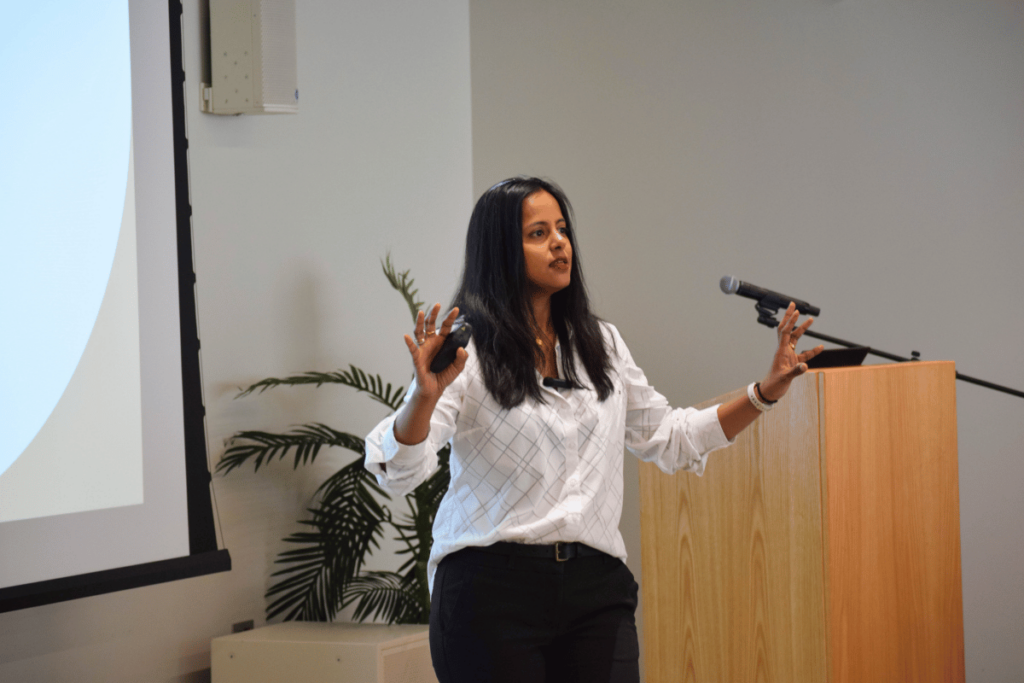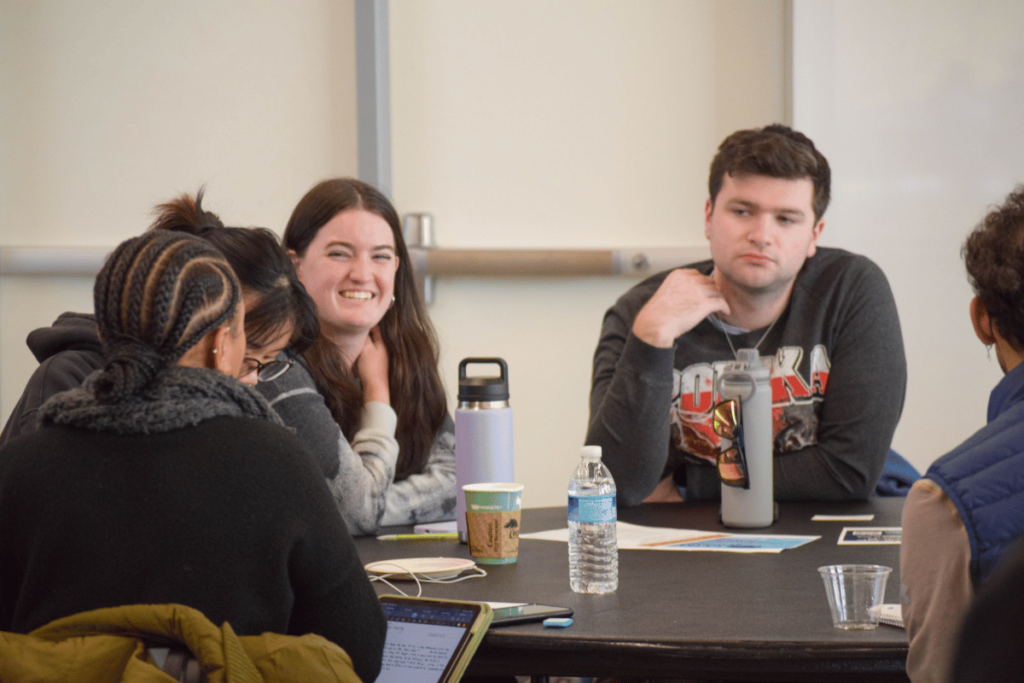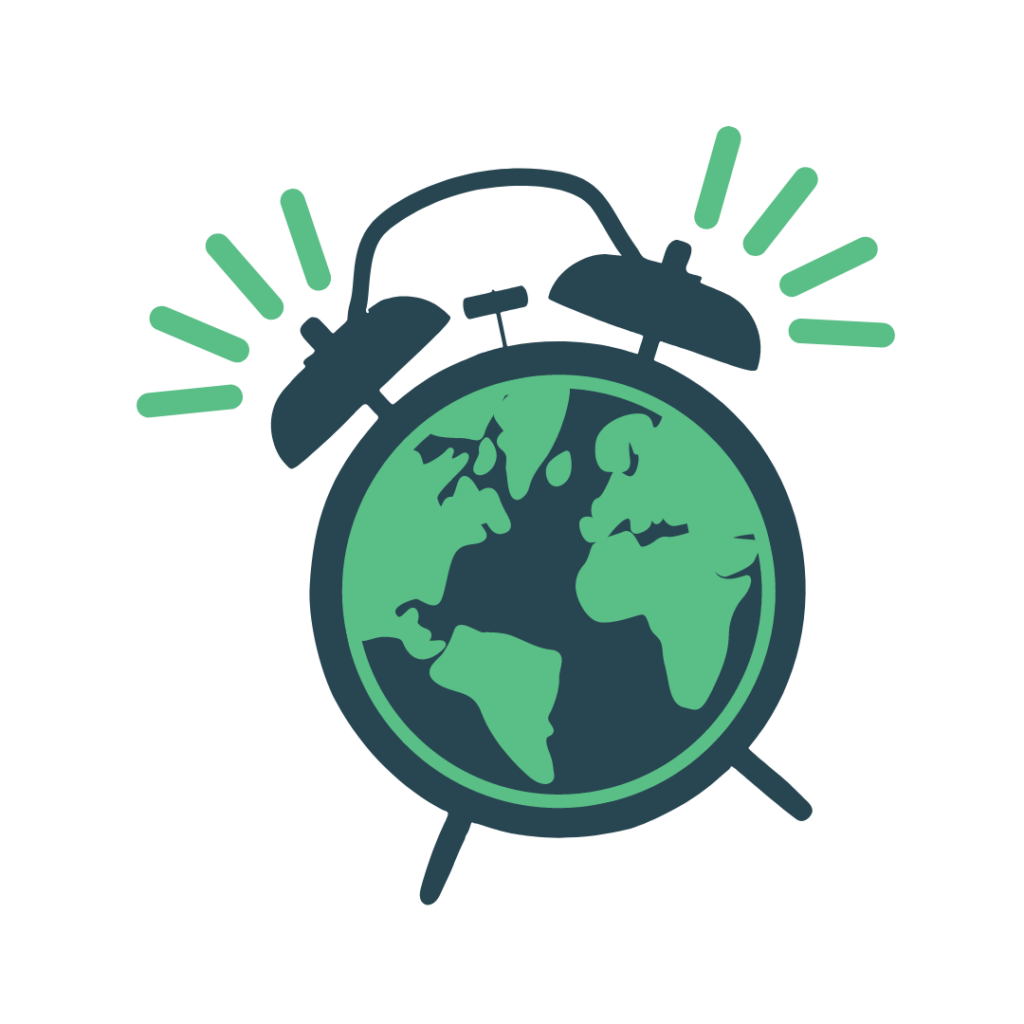Let’s face it, while many of us are very aware of the immense threat posed by climate change, for some, it can feel like this distant, poorly defined phenomenon without clear connections to everyday life. Scientists can point to lower artic sea ice coverage or increases in atmospheric CO2 concentrations, but without making these findings accessible and connecting them back to the issues people face every day, it’s hard to mobilize them to act. That’s exactly why, this past Monday, we teamed up with Temple Libraries to host a Climate Communications Workshop that helped students, researchers, and faculty alike explore strategies to maximize their research’s impact.

The room was lively- bringing students and faculty from a wide range of disciplines together – eager to share ideas and learn from our guest speakers. Temple professor Dr. Becki Beadling (Department of Earth and Environmental Science) kicked us off – drawing on her experiences communicating her research on the ocean’s role in climate change to highlight four key ways scholars can use their findings to encourage action by establishing trust, informing and educating, conveying urgency, and providing actionable steps.

These science communications goals are a great place to start, but what do they look like in practice? We were lucky to welcome NOAA Geophysical Fluid Dynamics Lab Post-doctoral researcher Zachary Labe as a keynote speaker to demonstrate how he uses clear graphics to turn data on arctic temperature change into compelling stories. One key element of his approach is to leverage social media to compete with the speed of media coverage by providing daily, accurate, and legible climate data to a diverse audience. These stories resonate on a personal level and represent the importance of bringing people into the science journey.
“To me, it’s all about telling stories.”
Dr. Zachary M. Labe
During the first workshop exercise participants got the chance to draft and practice “elevator pitches” for their research. They teamed up with their fellow climate scholars and advocates to share what they do and why it matters. This not only helped them practice Dr. Beadling and Dr. Labe’s techniques but strengthened Temple’s climate community by facilitating collaboration and knowledge-sharing across disciplines.

At first, participants struggled to narrow down their pitches. This led to the question: who are you trying to reach? This is where Temple professor Dr. Meghnaa Tallapragada (Department of Advertising and Public Relations) used specific examples from her research in strategic science communications to emphasize the importance of defining your audience and tailoring your approach to touch on their lived experiences. For example, you would approach an acquaintance you met a party who doesn’t believe in climate change much differently than a highschooler who is interested in studying climate science.

“You have to ground [your research] in a context that matters for people.”
Dr. Meghnaa Tallapragada
Using specific strategies from Dr. Tallapragada’s examples, workshop participants refined their pitches to target those two aforementioned groups specifically. Two strategies that participants seemed to find most helpful were connecting their research back to relevant examples from their audience’s everyday lives and ending their pitches with a call to action – emphasizing the threat of their issue but building efficacy instead of fear.

“Including a solution gives people hope.”
Livia Haines, Fox ’25
In the end, participants gained not only the tools to amplify the positive impact of their research but forged new connections with fellow climate scholars and advocates – providing lasting opportunities to foster climate action on campus and beyond. None of this would have been possible without the illuminating contributions from guest speakers Dr. Beadling, Dr. Labe, and Dr. Tallapragada alongside the organizational efforts of Temple Libraries Staff Nancy B. Turner and Ella Lathan and the support of Dean Joe Lucia.
“This series is a prime example of how we can further integrate Charles Library as a hub for learning, creativity, collaboration.”
Joe Lucia, Dean of Temple Libraries

A Time to Act: Responses to Climate Change within and Beyond the University
This event was the second in our ongoing series with Temple Libraries designed to foster a more sustainable and environmentally equitable university campus and community. Follow the link below to learn more about and register upcoming events in this series.
